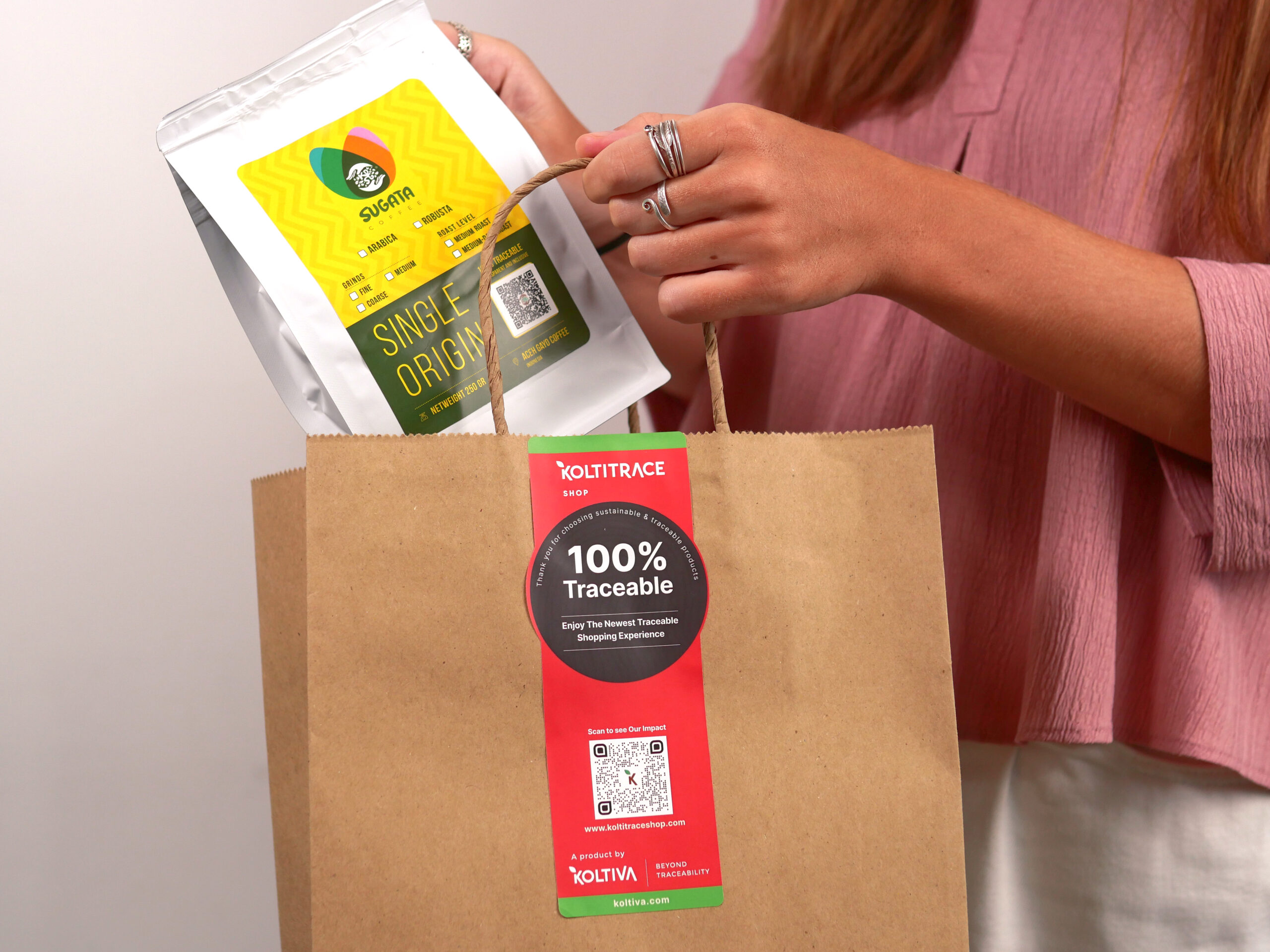Stories
5 Dec 2023
4 min

Traceability has become an increasingly prominent practice across various industries, with the food industry no exception (1). In essence, food traceability involves systematically following and tracing the journey of food products throughout the entire supply chain, starting from the farm and concluding at the dining table. This emerging trend has spurred advancements in food traceability, empowering businesses to oversee and manage their supply chains effectively.
The primary objectives include promoting sustainability, mitigating the potential financial ramifications associated with product recalls, and instilling confidence in consumers by transparently revealing the origins of their food.
The influence of traceability on sustainable goods and the industry is profound, underscored by several key points:
- Increased Transparency and Consumer Confidence: Traceability catalyses heightened transparency, offering consumers a detailed view of goods’ origin and production processes. This transparency, in turn, fosters greater confidence among consumers in the sustainability and ethical practices associated with the products they choose to buy (2).
- Empowerment of Consumer Choices: By furnishing comprehensive information on product sourcing and environmental impact, traceability empowers consumers to make more enlightened and sustainable purchasing decisions. This capability allows individuals to align their choices with personal values and preferences, contributing to a more informed and conscientious consumer base (3).
- Mitigation of Environmental and Social Risks: The implementation of traceability aids in identifying and eliminating unsustainable practices within the supply chain. This process enables consumers to support products that adhere to environmentally friendly and socially responsible standards, thereby mitigating potential environmental and social risks associated with certain goods.
- Support for Sustainable Business Models: Companies that invest in traceability are strategically positioned to meet consumers’ evolving demands for sustainability.
Furthermore, traceability helps businesses comply with regulatory requirements. This dual capability enables companies to deliver products that align with consumer preferences for sustainability, customization, and prompt delivery at a competitive cost. Traceability becomes a cornerstone for fostering sustainable business models within the industry.
The pivotal role of traceability in instigating transformative shifts, particularly in shaping consumer behaviour towards eco-consciousness, is paramount. Research consistently underscores the necessity of a conscientious approach to food traceability as a cornerstone for making informed and rational food purchases, fostering sustainable consumption and development (4).
Moreover, disseminating traceability knowledge has positively correlated with heightened green purchase intentions and a more pronounced inclination towards sustainable buying practices among consumers. This evolving consumer behaviour signifies a substantial shift in preferences and presents a significant opportunity for businesses committed to sustainability and transparency. These businesses stand poised to capture market share and gain a competitive advantage in an environment increasingly prioritizing eco-conscious choice.

With consumer behaviour shifting towards eco-consciousness, implementation traceability by brands and sustainable platforms is crucial to meeting the increasing market of eco-conscious consumers. Traceability platforms allow brands to track their supply chains from raw material to finished goods, collecting critical data down to the product or batch level. This enables them to relay details about how and where their product is made. This information empowers consumers to make more informed and sustainable purchasing decisions, aligning with their values and preferences.
Empowering Eco-Conscious Consumption with Traceable and Ethical Choices
KoltiTrace SHOP, a product by Koltiva, represents the forefront of sustainable commerce in Indonesia. It offers ethically produced goods with traceable origins. Integrated with KoltiTrace MIS, our traceability system ensures a comprehensive journey from seed to table. We take pride in curating locally sourced products verified by Geographical Indications, guaranteeing the authenticity of each item from the diverse regions of Nusantara. This provides a unique characteristic for every product and reinforces our commitment to supporting local communities.
More than just a marketplace, KoltiTrace SHOP is dedicated to ethical production practices that prioritize environmental consciousness and the well-being of local producers. Consumers actively contribute to a sustainable and responsible approach to commerce by choosing products from our platform. Be part of our community, and together, let’s build a marketplace that values and supports both the environment and local communities.
References:
https://www.ncbi.nlm.nih.gov/pmc/articles/PMC9102867/
https://www.modernretail.co/operations/how-traceability-became-the-latest-eco-friendly-buzzword-in-apparel/
https://unece.org/circular-economy/news/innovation-transparency-and-traceability-must-clothing-industry
https://www.packagingdigest.com/food-safety/food-traceability-technologies-7-things-know
Writer: Rihlah Bilkis, social media at Koltiva
Editor: Boby Hermawan, Head of Digital Marketing at Koltiva
About the writer: Rihlah Nahdhiyah Bilkis, a skilled writer with a social media and copywriting background, excelled as a social media specialist at Koltiva, crafting captivating articles on products and producer stories for the company’s blog, showcasing her unique ability to blend technical details with human narratives. Her strategic approach to social media has been instrumental in connecting with the audience, making her a promising talent in content creation.






